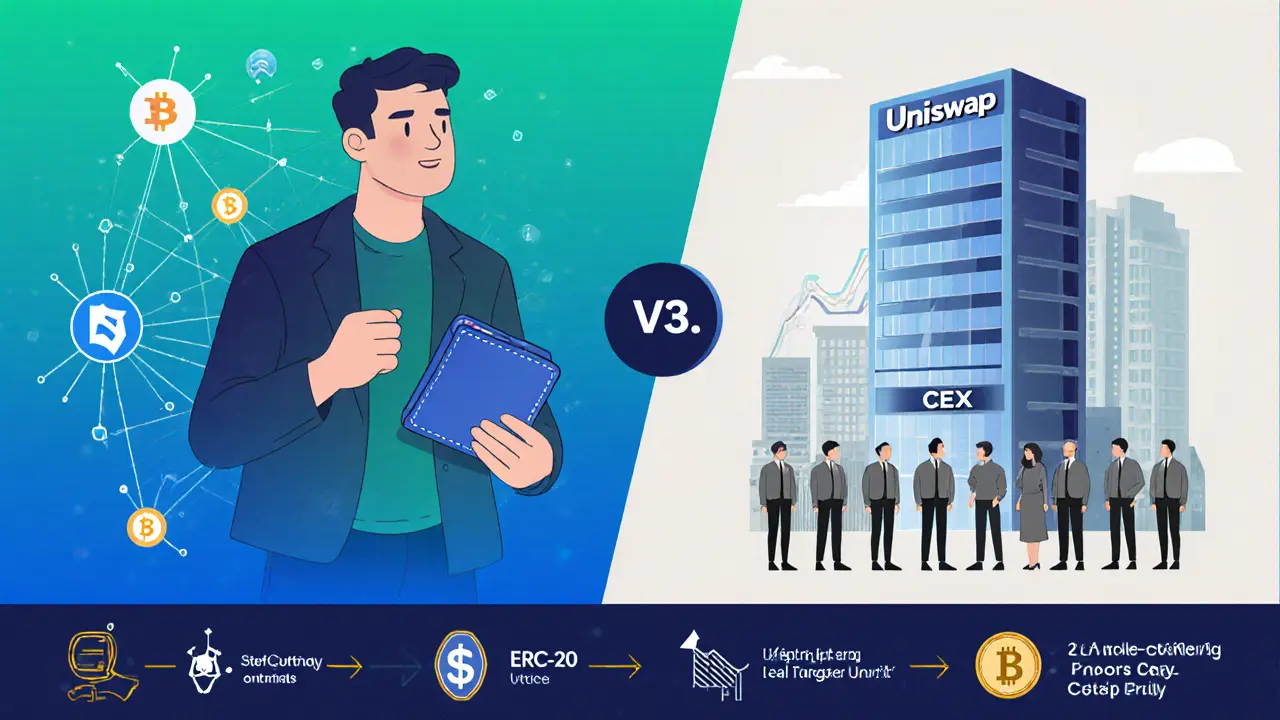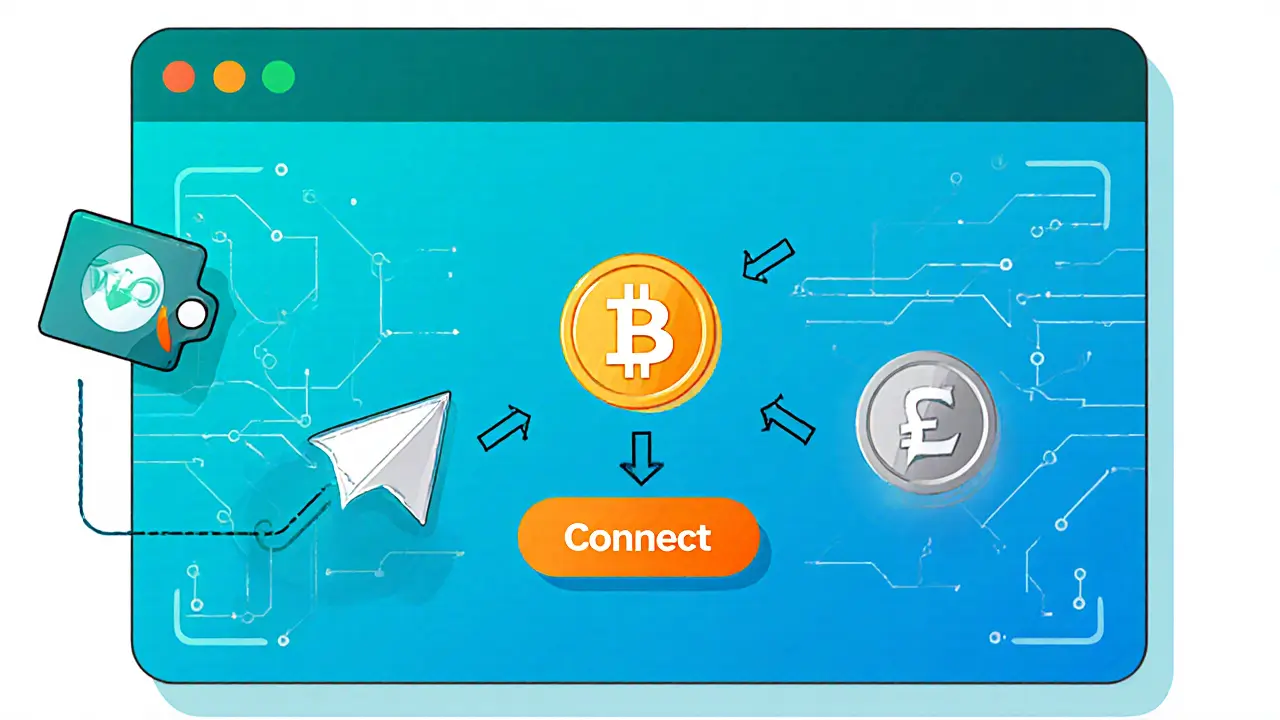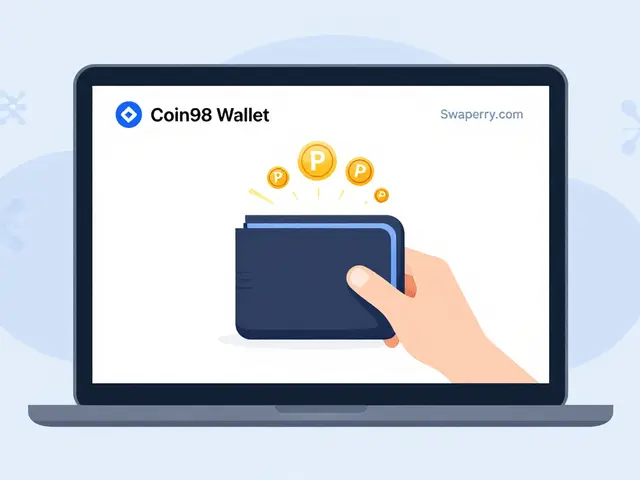Liquidity Position Simulator
Estimate Your Uniswap V3 Position
Calculate potential returns and impermanent loss risk based on your concentrated liquidity parameters.
Key Takeaways
- Uniswap V3 runs on Ethereum and multiple L2s, offering concentrated liquidity that boosts capital efficiency.
- Fee tiers range from 0.01% to 1%, letting LPs tailor earnings to asset volatility.
- Gas on Ethereum can be pricey, but switching to Polygon or Optimism cuts costs dramatically.
- Only ERC‑20 tokens are supported, so assets on other chains need bridges or other DEXs.
- For beginners, the UI is simple, but mastering concentrated liquidity requires a learning curve.
When you hear the name Uniswap V3 is the third‑generation decentralized exchange (DEX) built on Ethereum, featuring a concentrated liquidity model and multiple fee tiers that let users trade thousands of ERC‑20 tokens directly from their wallets. Launched in May 2021 and still dominant in 2025, it processes roughly half of all weekly DEX volume and holds about $4.5 billion in total value locked (TVL). If you’re wondering whether the platform lives up to the hype, this review breaks down the core features, costs, and user experience so you can decide if Uniswap V3 is right for your trading or liquidity‑provision strategy.
How Uniswap V3 Works - The Basics
At its heart, Uniswap is an Automated Market Maker (AMM). Instead of matching buyers and sellers, the AMM uses a smart‑contract‑controlled liquidity pool. Traders swap tokens against the pool, while liquidity providers (LPs) earn a slice of each trade.
The big upgrade in V3 is Concentrated Liquidity. In earlier versions, LPs had to spread capital across the entire price curve-from zero to infinity-meaning a lot of money sat idle. V3 lets you pick a price range, say $1,800‑$2,200 for ETH/USDC, and your capital only works inside that band. The result: up to 4,000% higher capital efficiency in tight ranges, according to the Uniswap blog.
Fee Structure - Picking the Right Tier
Uniswap V3 supports four fee tiers: 0.01%, 0.05%, 0.30%, and 1.00%. The 0.30% tier is the default and still dominates the market, but the lower tiers are perfect for stable‑coin pairs or low‑volatility assets. Higher‑fee pools attract risk‑taking traders willing to pay more for deeper liquidity.
When you compare fees to a centralized exchange like Coinbase Advanced (0.60% for small traders), Uniswap’s on‑chain fee looks cheap. The catch? You still pay Ethereum gas on every swap. In periods of network congestion, a simple ETH‑USDC trade can cost $15‑$20 in gas, wiping out the fee advantage. That’s why many users now hop to L2s.
Layer‑2 Options - Cutting Gas Costs
Uniswap V3 lives on several chains: Ethereum mainnet, Optimism, Arbitrum, and Polygon. Polygon’s roll‑up architecture delivers sub‑$0.01 gas for most swaps, making the Ethereum DEX experience affordable while still tapping into Ethereum’s deep liquidity via bridging.
To switch, open the network selector in the upper‑right corner of the UI and choose your preferred L2. Remember, liquidity on L2s is separate from mainnet, so you’ll need to bridge assets if you want to trade the same pool across networks.
Token Coverage - What Can You Trade?
Uniswap V3 supports any ERC‑20 token, from heavyweight names like Ethereum (ETH), USD Coin (USDC), and Wrapped Bitcoin (WBTC), to newer DeFi gems such as Chainlink (LINK) or Uniswap Token (UNI). Because each pool is a smart contract, there’s no listing approval process-anyone can create a pool, which fuels the platform’s expansive token catalog.
The downside? Only ERC‑20 assets are allowed, meaning native coins like Bitcoin or Solana need a wrapped version to appear on Uniswap.
Liquidity Provider Experience - Rewards and Risks
When you add liquidity, Uniswap V3 mints a unique non‑fungible token (NFT) that represents your position. This NFT stores the chosen price range, amount of each token, and accrued fees. You can later sell or trade that NFT on secondary markets, effectively turning your LP position into a tradable asset.
Potential earnings can be eye‑popping. In 2025, the ETH/ONDO pool posted an APR of 80.8% for LPs who nailed the right range. However, the same concentration that boosts returns also magnifies impermanent loss. If the market moves outside your selected band, your assets sit idle and you miss out on price appreciation.
For newcomers, the UI now includes a “Range Selector” wizard that walks you through setting min/max prices, but you’ll still want to test with a small amount before committing large capital.
Comparison: Uniswap V3 vs Centralized Exchanges
| Feature | Uniswap V3 | Coinbase Advanced |
|---|---|---|
| Custody | Non‑custodial - you keep private keys | Custodial - Coinbase holds keys |
| Fee Structure | 0.01%‑1% pool fee + gas | 0.30%‑0.60% per trade |
| Token Variety | All ERC‑20 tokens (~5,000) | ~300 listed tokens |
| Regulatory Protection | None - fully decentralized | FDIC‑insured USD balances, KYC/AML |
| Gas/Network Cost | Variable, high on Ethereum; low on L2s | Flat fees, no gas |
Bottom line: If you value self‑custody and want the deepest pools, Uniswap V3 wins. If you prefer a simple UI with fiat on‑ramps and no gas headaches, a CEX may feel smoother.
User Experience - Interface and Support
The web UI feels like a stripped‑down trading app: a token selector, price chart, and “Swap” button. Mobile apps (iOS/Android) launched in 2023 bring the same flow to phones, and they integrate with wallets like MetaMask, Coinbase Wallet, and Trust Wallet. Connect your wallet, approve the transaction, and you’re good to go.
Support is community‑driven: Discord, Reddit, and the Uniswap Docs are the main help channels. There’s no phone line, which can feel odd if you hit a bug, but the open‑source nature means you can audit contracts yourself or ask developers directly.

Security and Audits - What the Numbers Say
Uniswap’s smart contracts have undergone multiple audits by firms like Trail of Bits and ConsenSys Diligence. The protocol’s core contracts have been live for over six years with only a handful of minor bugs, none of which caused user fund loss. However, DeFi is still experimental-new hook features introduced in V4 (2025) carry fresh risk vectors, so keep only what you can afford to lose.
Future Outlook - Why V3 Still Matters After V4
Uniswap V4 arrived early this year with “Hook” extensions that let developers write custom pool logic. While V4 is generating buzz, V3 remains the workhorse for most traders because it’s battle‑tested and offers a simpler UI. Many LPs keep funds in V3 pools on Ethereum for the deepest liquidity, while using V4 on Optimism for niche strategies.
Analysts predict that the DEX market will keep expanding, and Uniswap’s governance token UNI could see price upside if fee revenue stays strong. Expect more L2 integrations and possibly cross‑chain swaps directly in the UI within the next 12 months.
Bottom Line - Should You Use Uniswap V3?
If you’re comfortable handling a wallet, understand that gas fees fluctuate, and want the best possible token selection, Uniswap V3 is a solid choice. Newcomers should start on Polygon or Optimism to avoid gas shock, and they might begin with a low‑fee stable‑coin pool to learn the ropes of concentrated liquidity.
For seasoned DeFi players seeking high‑yield LP positions, the ability to set tight price ranges and collect fees in multiple tiers makes V3 still competitive even after V4’s launch.
Frequently Asked Questions
What wallets can I connect to Uniswap V3?
MetaMask, Coinbase Wallet, Trust Wallet, Rainbow, and any wallet that supports WalletConnect can be linked directly from the UI.
How does concentrated liquidity differ from traditional liquidity provision?
Instead of spreading your assets across the full price curve, you choose a custom price range where your capital is active. This concentrates your funds, boosting fee earnings but also increasing exposure to price movement outside the range.
Are there any hidden fees on Uniswap V3?
Besides the pool fee you select (0.01%‑1%), you pay Ethereum gas for each transaction. On L2s the gas is much cheaper, but you still need to account for bridge fees if moving assets between chains.
Can I trade fiat directly on Uniswap?
No. Uniswap is a pure crypto‑to‑crypto platform. To bring fiat in, you must first convert it on a centralized exchange or a fiat‑on‑ramp, then move the resulting stable‑coin (e.g., USDC) to your wallet.
Is Uniswap V3 safe for long‑term holding?
The core contracts have been audited and run for years without major loss. Still, the protocol is immutable, so any new features (like V4 hooks) carry fresh risk. Keep only what you can afford to lose and stay updated on audits.




Comments (9)